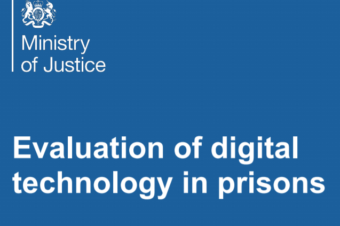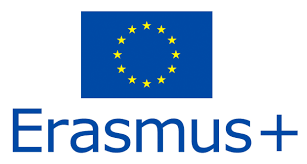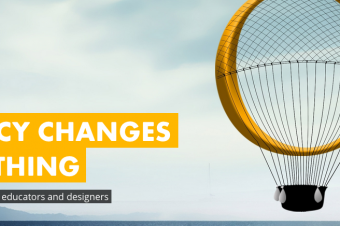Translation with the help from DeepL/tw
At the request of the prison administration of a South Eastern European state, EUROPRIS recently carried out a non-representative survey among its members, nevertheless it is worth taking a look at the results of the survey. The tenor of the questions submitted is whether there are restrictions on the right to education of prisoners and, if so, what kind of restrictions these are.
Twelve countries, mainly from northern and north-western Europe, took part in the survey. From the EPEA’s point of view, a positive result can be seen from the responses: the right to education is a valuable asset that is fundamentally protected by all participating states! Of course, the type of imprisonment – open or closed – as well as the risk assessment ultimately play a role with regard to the concrete design of educational opportunities, but it can be read from the responses that education is considered essential for successful reintegration and access to it should be granted whenever possible.
Basically, it does not matter whether an inmate is in a closed or open regime prison, all of them can go to school. There is even a tendency for inmates in open custody to attend a public school outside the prison walls – where circumstances allow so.
The majority of inmates can go to school every day, partly due to the individual correctional plan and the educational goals formulated therein. The system is much more permeable if the education offered in prison is organised via the Ministry of Education, since the same curriculum then applies inside and outside and the same educational objectives are aimed at.
In the closed prison system, or then depending on the risk potential, the inmates are accompanied on their way to school, and there are even supervisory staff present during lessons or the classroom is surveilled by camera.
In about 80% of the responding countries, it is stated that distance learning is possible, i.e. online educational offers are available to the inmates. After the experiences in the EPEA webinars during the pandemic, this result is rather surprising. However, this is probably related to the fact that many of the responses received came from northern and north-western Europe.
From the EPEA’s point of view, it is encouraging to note that in 75% of the countries, attendance at education is not made dependent on the prisoner’s “good behaviour” – unless he is sanctioned at short notice for gross disregard of internal rules. In a quarter of the responses, it is clear that the possibility of attending education is linked very directly to the inmate’s “correct behaviour”.
On the cardinal question of whether restrictions exist for terrorist offenders in terms of educational participation, all but one prison administration answered no, expressing the belief that education is a universal human right in any case.
Jüngste Umfrage von EUROPRIS über Einschränkungen der Bildung im Strafvollzug
Original text
Auf Ersuchen der Gefängnisadminstration eines südosteuropäischen Staates führte EUROPRIS jüngst eine nicht repräsentative Umfrage bei seinen Mitgliedern durch, trotzdem lohnt sich ein Blick auf die Resultate der Umfrage. Tenor der eingebrachten Fragen ist, ob es Einschränkungen beim Recht auf Bildung der Gefangenen gibt und wenn ja, welcher Art diese Einschränkungen sind.
Zwölf Länder, vornehmlich aus Nord- und Nordwesteuropa, haben sich an der Studie beteiligt. Aus Sicht der EPEA kann angesichts der Antworten durchaus ein positives Fazit gezogen werden: das Recht auf Bildung ist ein hohes Gut, das von allen teilnehmenden Staaten grundsätzlich geschützt wird! Selbstverständlich spielen die Art der Inhaftierung – offener oder geschlossener Vollzug – sowie die Risikoeinschätzung letztlich eine Rolle in Bezug auf die konkrete Ausgestaltung der Bildungsmöglichkeiten, aber aus den Antworten ist herauszulesen, dass Bildung für eine erfolgreiche Reintegration als unerlässlich betrachtet wird und der Zugang dazu wenn immer möglich gewährt werden sollte.
Grundsätzlich spielt es keine Rolle, ob ein Insasse im geschlossenen oder offenen Vollzug ist, alle können in die Schule. Ja es ist sogar die Tendenz auszumachen, dass die Insassen im offenen Vollzug – sofern es die Umstände erlauben – eine öffentliche Schule ausserhalb der Gefängnismauern besuchen können.
Grossmehrheitlich können die Insassen täglich in die Schule, zum Teil bedingt durch den individuellen Vollzugsplan bzw. den darin formulierten Bildungszielen gemäss. Das System ist deutlich durchlässiger, wenn das Bildungsangebot im Gefängnis über das Bildungsministerium organisiert wird, da dann drinnen wie draussen derselbe Lehrplan gilt und dieselben Lernziele angestrebt werden.
Im geschlossenen Vollzug oder dann je nach Risikopotential werden die Insassen auf dem Weg in die Schule begleitet, ja im Unterricht ist sogar Aufsichtspersonal anwesend oder das Schulzimmer wird per Kamera überwacht.
In rund 80% der antwortenden Länder wird angegeben, dass das distance learning möglich ist, das heisst online-Bildungsangebote können von den Insassen genutzt werden. Nach den Erfahrungen in den EPEA-Webinars während der Pandemie ist dieses Resultat doch eher überraschend. Dies dürfte aber damit zusammenhängen, dass viele der abgegebenen Antworten aus Nord- und Nordwesteuropa stammen.
Aus Sicht der EPEA erfreulich ist der Umstand, dass der Besuch der Bildung in 75% der Länder nicht von einem «guten Benehmen» des Gefangenen abhängig gemacht wird – ausser er sei wegen grober Missachtung der internen Regeln kurzfristig sanktioniert. Bei einem Viertel der Antworten wird deutlich, dass die Möglichkeit für den Besuch der Bildung besteht sehr direkt vom «korrektem Verhalten» des Insassen abhängig gemacht wird.
Bei der Kardinalfrage, ob für terroristische Straftäter Einschränkungen in Bezug auf den Bildungsbesuch existieren, antworteten bis auf eine Gefängnisadministration alle mit Nein. Damit wird die Überzeugung zum Ausdruck gebracht, dass Bildung in jedem Fall ein universales Menschenrecht ist.





